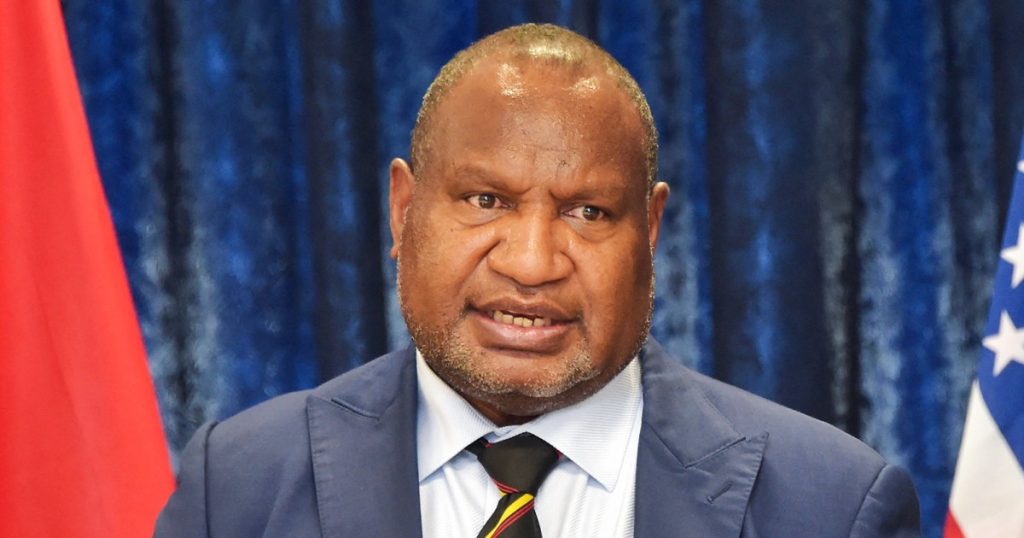Prime Minister James Marape of Papua New Guinea defended his country after President Joe Biden suggested that cannibals in the region ate his uncle’s body during World War II. Marape stated that while Biden’s remarks may have been a slip of the tongue, Papua New Guinea does not deserve to be labeled as such. Biden’s comments were made during an event in Pennsylvania, where he mentioned that his uncle, an Army Air Corps aviator, was shot down in New Guinea. U.S. military records about the incident do not mention cannibalism but state that the plane was forced to ditch in the ocean off the north coast of New Guinea, with the bodies of the three men on board never being found.
The U.S. is committed to finding and repatriating the remains of fallen U.S. service members from World War II, with the support of Papua New Guinea’s Defense POW/MIA Accounting Agency contributing to this effort. White House spokesperson Andrew Bates clarified that Biden was proud of his uncle’s service and acknowledged that the military aircraft he was on crashed in the Pacific. The Asia-Pacific region saw heavy fighting during World War II, and the remnants of the conflict, such as bodies, plane wrecks, and unexploded ordnance, still pose a threat in Papua New Guinea more than seven decades later. Marape emphasized that his people were needlessly dragged into a conflict that was not their doing.
The prime minister highlighted the unsolved mysteries of World War II that still exist in the seas, mountains, and jungles of Papua New Guinea. Marape urged President Biden to take action in cleaning up the remnants of the war so that the truth about missing servicemen, such as Ambrose Finnegan, can be discovered. Biden’s comments were seen as offensive to Papua New Guinea, a key U.S. strategic ally in the southwestern Pacific Ocean, especially as the country is seeking to compete with China for influence in the region. Last year, the U.S. signed a security pact with Papua New Guinea, underscoring the importance of the relationship between the two nations.
As the Pacific Island nation continues to deal with the legacy of World War II, Marape called for the White House to address the remnants of the conflict in the region. Residents of Papua New Guinea still live in fear of being harmed by unexploded ordnance scattered throughout the country. The prime minister emphasized that the people of Papua New Guinea were innocent bystanders in the war and should not be unfairly labeled due to misconceptions or misinformation. Marape’s plea for the U.S. to take action in cleaning up the remains of World War II reflects the ongoing challenges faced by the nation in dealing with the aftermath of the conflict.
In conclusion, the controversy surrounding President Biden’s remarks about cannibalism in Papua New Guinea during World War II highlights the need for continued efforts to address the legacy of the conflict in the region. Marape’s defense of his country and his call for the U.S. to assist in cleaning up the remains of the war underscore the ongoing impact of World War II on Papua New Guinea. As the nation seeks to move forward and ensure the safety of its residents, it is essential for all parties involved to work together to address the remnants of the conflict and honor the memory of those who lost their lives during the war.


